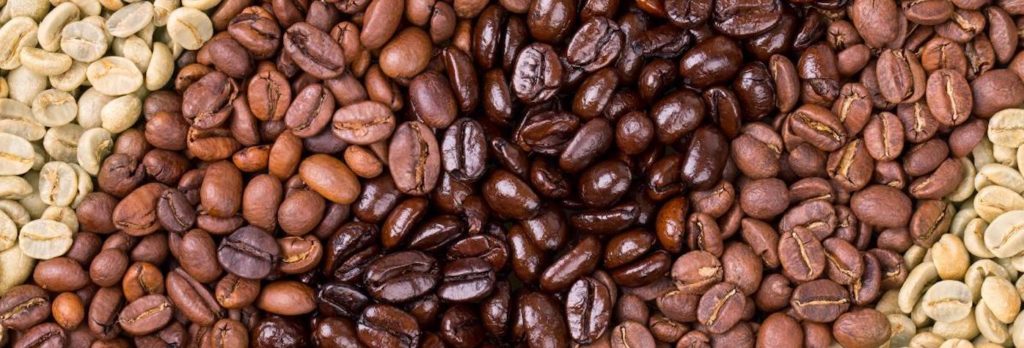
Coffee and Antioxidants
Coffee drinking has long been more than just a way to cut through your morning haze. Since the 11th century, records show warriors and hunters were using caffeine as fuel to help them maintain focus and energy when they needed it most. And in the 15th century, legend has it that the philosopher Voltaire was drinking between 40-50 cups of coffee on most days. While we may not be needing to take advantage of coffee’s benefits to hunt antelope or write philosophical works, research has shown that coffee can provide a variety of health benefits in the short and long-term.
The immediate benefits of coffee drinking might be a bit more obvious, but it’s worth looking at just what it’s able to do and why it can be the right choice over alternatives. Probably the most well-known effect of coffee drinking, and the one that got many to take their first sip, is that the caffeine in coffee can help boost alertness and prevent fatigue. Coffee is also one of the best ways of getting your dose of caffeine, with up to three times the amount found in a similar quantity of tea or soda. Most people will start feeling the effects of caffeine after only 10-20 minutes, but it takes around 45 minutes for your body to be feeling to full effect. For most people, caffeine will take about 4-5 hours to cycle completely through their system, giving them that little extra oomph the whole while.
In the medium to long-term, coffee and caffeine can play an important role in helping people maintain a healthy diet, and lose weight. Research published in the Journal of Food Science Biotechnology showed that over the course of time people incorporating coffee into their diets found were more successful in losing weight. Researchers attributed this to caffeine’s naturally appetite suppressing qualities, as well as its ability to turn fatty tissue into fuel. It has also been found that coffee drinking can improve athletic performance while reducing inflammation. For some of the same reasons as above, the increase in focus and energy can help you get the most out of your next work out as well as speeding up recovery. By including coffee in your daily routine, you can reduce craving and the tendency to binge eat. Basically, what we’re saying is if you wanna lose a little, you should try a latte!
Some of the most important and interesting health improvements associating with coffee drinking, however, only start to reveal themselves over a longer period. The long-term effects, from degenerative disease risk reduction to blood pressure improvements are thanks, largely, to the antioxidants found in coffee beans. Antioxidants, as the name implies, inhibit oxidation. But what does that really matter? When parts of your body oxidize they deteriorate and become more susceptible to disease and degenerative maladies. Typically found in leafy greens and dark-colored berries, antioxidants are a class of micronutrients whose effects are studied for their ability to stave off disease and improve longevity. The kinds of antioxidants present in coffee are called quinines. Powerful disease-fighting tools, quinines become present in coffee during the bean roasting process.

With Americans drinking an average of two cups a day, coffee is actually the number one source of antioxidants in many American diets. Rich in quinine, and several other useful micronutrients, coffee can help supplement for micronutrients and antioxidants you wouldn’t otherwise be getting.
The antioxidants found in coffee have been linked with a 50% risk reduction for gallstones, 80% reduction of cirrhosis of the liver, and a 25% reduction in the risk of colon cancer. Quinine has also been shown to be able to slow the onset of Parkinson’s, or even reducing the likelihood of a person having it by up to 80% over the non coffee drinking population. The good news isn’t just for caffeine lovers, decaf drinkers in particular can diminish their likelihood of having rectal cancer by more than half.
There are, of course, some things to keep in mind when trying to make the most of coffee’s healthful qualities. The type of coffee you’re drinking, as well as the quantity, can make a difference toward you achieving your goals. As with many things, moderation is unfortunately key. Though everyone will respond differently, most studies show that people get the best benefit from around 2 cups of coffee a day.
If you’re trying to maximize coffee’s ability to help curb your appetite and lose weight, you’ll want to avoid high-cal add-ins like sugar and cream. To get the best benefit from caffeine, you’ll want to make sure you limit consumption to just before when you’re wanting to boost alertness. Otherwise you will have a decreased response to the caffeine and need to consume more to have the same effect. Finally, some studies are showing that dark roasts have a greater quantity of antioxidants per cup. For an added bonus, these roasts typically less acidic than the average light roast, making them easier on your stomach and an even better way to incorporate it as a part of a healthy diet.
